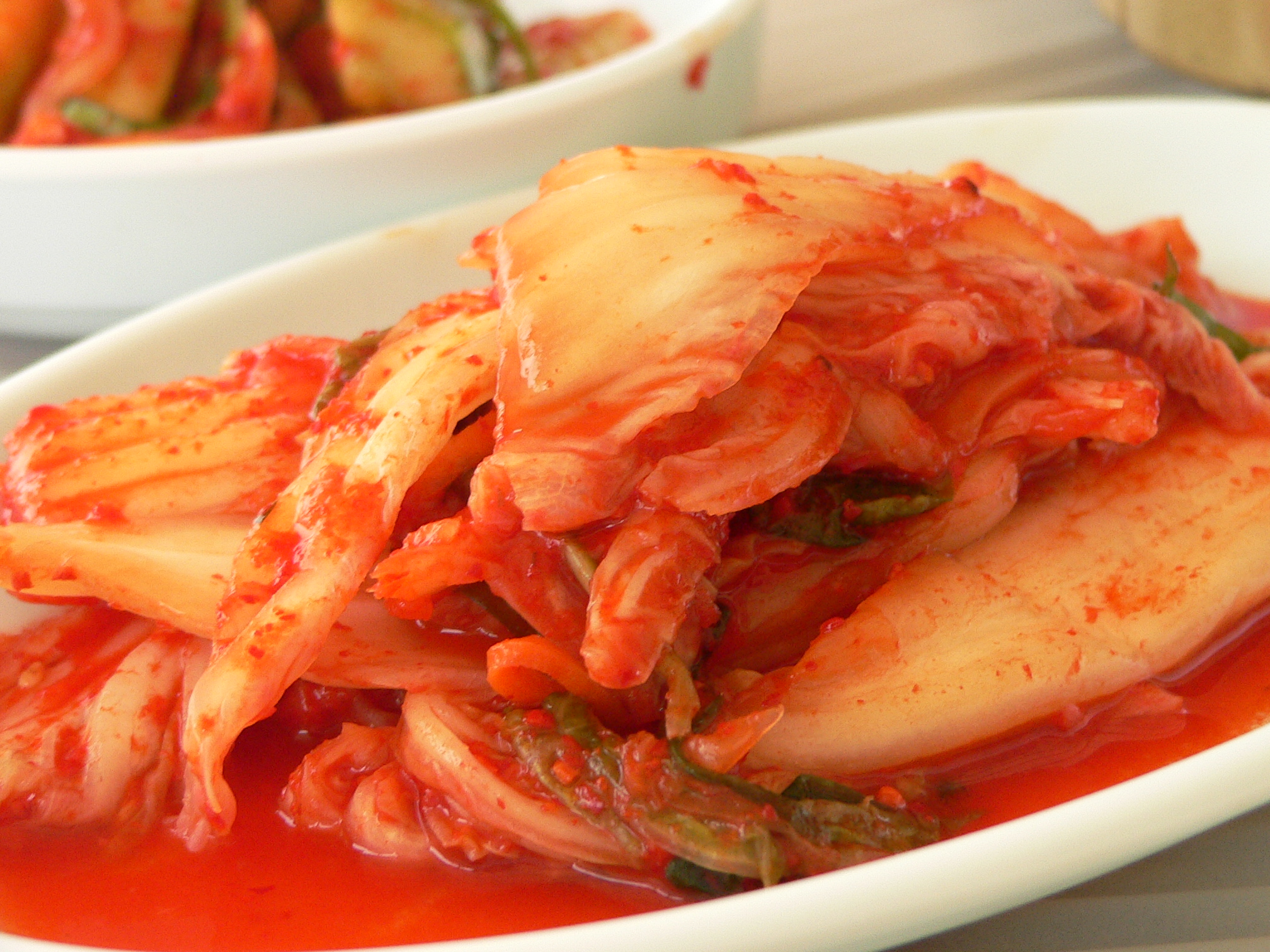Kimchi equals Korea. Few foods are so tied into a nation’s identity than this funky, fermented product. Made with napa cabbage, daikon, cucumber and other readily available vegetables, it is served with every meal in Korea. I love it and make it every 6 weeks or so at home.
I’m not Korean, however. I grew up in Orange County California in the 70’s and 80’s, and Korean food was totally unknown to me. I’m a white guy that grew up in a largely white neighborhood. The Vietnamese community in Westminster wasn’t too far of a drive, but I never felt the need to visit. My mom is British and my dad was from Oklahoma. We ate well at home, but dinner stayed within the tried and true model of western-style protein, starch and vegetable.Kimchi making has traditionally been the sole province of Korean women. How did a 47 year old guy like me become obsessed with it? A lot has to do with the power of fermentation. Food plus preparation plus beneficial bacteria equals magic. This is true for beer, bread, cheese, cured meats and wine. Life may be impossible without chemicals; it’d also be far less enjoyable without fermentation. Think about the by-products: umami, alcohol, and tastes that are impossible to obtain otherwise.The recipe is simple. Salt the cabbage. Mix up garlic, ginger, fish sauce, salt shrimp, Korean chili powder, soy, and some sriracha type heat. Rinse cabbage, blend paste to veg, and let magic happen. If the weather is cool put the jars in the garage for three days to kick-start the fermentation. In warmer times it can go directly in the fridge; it ferments more slowly but works just as well. It’s best between 3-6 weeks of age.The path to the love of Korean food has been made possible by kimchi. Korean food isn’t very subtle much of the time. Neither is my palate. I am nothing but a raw beginner in exploring Korean food, but it’s been fun to start the journey. Blame kimchi, the influence of David Chang and his cooking (not traditional Korean, but his Momofuku cookbook uses the cuisine as aprimary reference), and a desire to try something different.Opinions about kimchi fall along the same lines as opinions about Neil Young’s music: people either really like it, or really don’t. Thus far I’ve only been able to bring one member of my family to the side of the light: my 11-year old son. This is after several years of exposure to the stuff, too. I can sneak some into a meat marinade or sauce, to give it an umami boost. As long as I don’t tell family and guests about it, it works great. I doubt my wife or 7 year old son will ever be caught eating kimchi straight out of the jar, however.Koreans seem more reluctant to adapt their cuisine to suit western tastes. The higher hurdle can keep people away, but the rewards waiting on the other side make the effort worth it.




